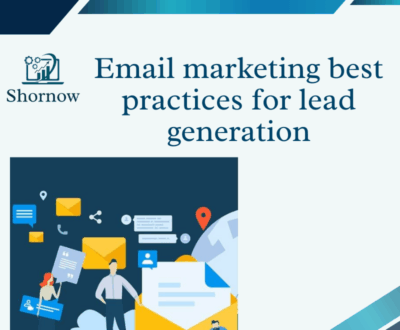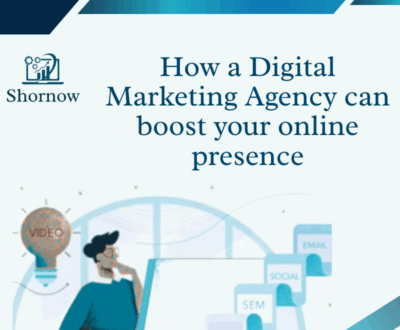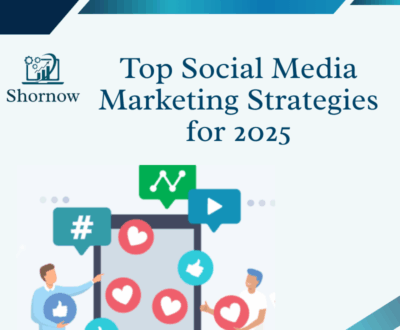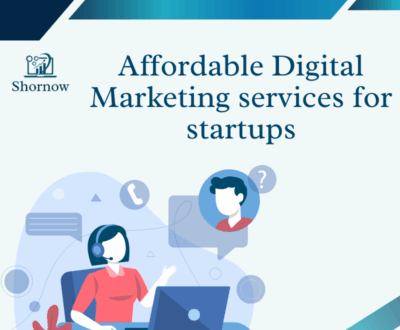Artificial Intelligence (AI) is changing every part of the global economy, and digital marketing is no different. How AI is changing the future of digital marketing is seen in the way businesses connect with customers, improve their campaigns, and enhance customer experiences.
AI technologies provide unmatched accuracy, speed, and scalability in managing large amounts of data, automating tasks, and offering highly personalized experiences that were not possible before.
AI can quickly analyze huge amounts of data, helping marketers move from guesswork to smart, data-based decisions. One big change AI brings is in understanding customers and dividing them into groups. Earlier, marketers used general categories and assumptions, but now AI looks at behavior, search history, and social media activity to create smaller, more specific groups of customers based on their unique interests and actions. This is a strong indicator of how AI is changing the future of digital marketing.
This customer grouping helps businesses send the right message to the right people at the right time. It makes marketing more effective, leading to higher sales and happier customers.
AI also helps predict what customers might do in the future. This helps marketers plan better for things like stock, content, and ads, which saves money and improves results.
Chatbots and AI tools are changing how businesses talk to customers by giving quick answers and support all day, every day. These bots are getting smarter—they can solve harder problems, learn from past chats, and even sound more like real people. This change shows how AI is changing the future of digital marketing by improving communication.
This makes the customer experience better and lets human workers focus on more important tasks. In content marketing, AI can write blog posts, product details, social media captions, and even video scripts using natural language tools.
These tools help create more content quickly without losing quality. They can also adjust the content to fit different platforms and audiences. Plus, AI can improve SEO by checking keyword trends, link opportunities, and what competitors are doing, helping marketers rank higher in search results.
AI has also changed email marketing by personalizing subject lines, send times, and content based on how users behave. This has greatly increased how often people open emails and click on links. In paid advertising, AI is important for programmatic ads—where ads are automatically bought and shown to the right people based on their age, interests, and real-time actions.
As AI keeps advancing, its effect on digital marketing grows stronger, giving businesses new ways to stay competitive and meet the needs of a tech-savvy, data-driven audience. This broader impact shows how AI is changing the future of digital marketing across industries.
One of the biggest ways AI is changing digital marketing is by transforming how marketers use data. With more online activity, businesses now have access to a huge amount of customer data. AI algorithms can analyze this data much faster and more accurately than traditional methods, revealing valuable insights about customer behavior, preferences, and trends.
These insights help marketers create more focused and effective campaigns, ensuring businesses send the right message to the right audience at the right time. AI helps predict future behavior by analyzing past data, allowing marketers to anticipate customer needs and take action to engage them before they make a decision.
For example, AI tools like predictive analytics can predict customer value over time, find high-value prospects, and suggest the best strategies to turn leads into customers.
This ability to predict has greatly improved lead generation and customer acquisition, helping businesses make more accurate and cost-effective decisions based on data.
Artificial Intelligence (AI) is changing the future of digital marketing in powerful ways. It’s helping businesses better understand customer behavior, create more personalized experiences, and improve their marketing campaigns for better results.
AI is also changing digital marketing through automation. In a fast-moving environment, marketers often have to handle many campaigns, channels, and platforms at the same time.
AI tools can automate tasks like social media scheduling, content creation, email marketing, and customer support. For example, AI chatbots can interact with customers 24/7, answering questions, solving problems, and helping them through the buying process.
These chatbots are made to understand natural language and can answer a wide variety of questions, so customers get instant help without waiting for a human representative.
As a result, businesses can offer a smooth customer experience, improve efficiency, and lower costs related to human workers. Besides chatbots, AI also helps automate content creation, enabling marketers to share relevant content easily across many platforms without needing constant manual effort. This automation shows how AI is changing the future of digital marketing.
AI tools can track how content performs, figuring out which posts connect with certain audiences and adjusting future content based on that. This automation saves time and makes sure the content is relevant and personalized.
AI’s ability to personalize customer experiences is one of its strongest uses in digital marketing. Today, customers expect a tailored experience, whether they’re browsing a website, getting an email, or interacting on social media.
AI helps businesses customize content, ads, and recommendations based on each customer’s preferences. By using machine learning, AI can track user actions, spot patterns, and predict future behavior, allowing marketers to deliver content that matches each customer’s interests, needs, and actions.
For example, big companies like Amazon and Netflix use AI to recommend products and movies based on what customers have browsed, bought, or rated. This level of personalization boosts engagement, keeps customers coming back, and increases sales because customers feel the brand understands their needs. That’s how AI is changing the future of digital marketing in real-world applications.
In email marketing, AI can improve subject lines, timing, and content to get better open and click rates. By studying user behavior, AI can figure out the best time to send an email and create a message that connects with the customer, making it more effective.
The result is better customer satisfaction and a stronger bond between the brand and the customer, building loyalty and trust. AI is also making paid ads more successful. Platforms like Google, Facebook, and Instagram use AI in their ad systems, helping advertisers reach the right audiences with the best ads.
AI can analyze user data to find patterns and improve ad targeting, ensuring ads reach the right people at the right time. This helps reduce wasted spending and increases the return on investment (ROI) for ads.
AI tools can also test and improve ads by learning over time, making sure that images, headlines, and calls-to-action are always performing at their best. AI tools like Google Ads’ Smart Bidding use machine learning to adjust bids automatically in real time, increasing conversions while sticking to the budget. These smart systems are part of how AI is changing the future of digital marketing.
AI can also improve the creative side of ads by analyzing which images, text, and formats work best for specific audiences. Marketers can test different combinations to see what gets the most engagement and conversions, helping businesses create more effective campaigns with better accuracy.
AI is changing content creation too. In the past, creating content was a slow and manual process that needed a lot of human effort to research, write, and optimize. But with AI-powered writing tools, the process has become much faster and more efficient.
AI can look at large amounts of web data to create content that is relevant, engaging, and SEO-friendly. For example, AI tools like GPT-3 can write blog posts, product descriptions, and social media posts that make sense and are relevant, saving marketers time on content creation. These tools represent how AI is changing the future of digital marketing in content strategy.
These tools also help optimize content for SEO by suggesting keywords and organizing it to improve search engine rankings. AI can even help create video and audio content by generating scripts, picking the best footage, and editing automatically.
While human creativity is still key in storytelling, AI makes the production process faster and better, allowing brands to create more content without losing quality.
AI is also making customer segmentation more advanced. In the past, segmentation was based on basic details like age, gender, and location. While these still matter, AI now allows for more detailed segmentation based on behavior and interests.
By analyzing how customers interact with a brand across different touchpoints—whether through website visits, social media interactions, or past purchases—AI can create detailed customer profiles that allow for more granular segmentation.
Marketers can then create personalized messages and offers for specific groups, making it more likely that customers will convert. For example, AI can help businesses find high-value customers who are about to leave, so they can use strategies like special offers or loyalty programs to keep them.
On the other hand, AI can identify new market segments, opening up opportunities for brands to expand their reach and grow their customer base. This development is a strong reflection of how AI is changing the future of digital marketing by enhancing audience analysis.
AI-powered analytics tools are helping businesses track and measure their digital marketing efforts more effectively. In the past, marketers mainly used basic metrics like page views or click-through rates to measure campaign success.
Today, AI helps collect and analyze much more detailed data, like customer engagement, feelings, and lifetime value. By combining and studying this data, AI can give useful insights that guide future marketing choices.
For example, AI can show marketers which channels and content types get the most engagement, helping them use resources better and improve future campaigns. Such insight shows how AI is changing the future of digital marketing by making data more actionable.
AI can also spot problems in a campaign, like ads or content that aren’t performing well, and suggest changes in real-time, making sure marketing strategies stay flexible and adjust to market changes.
The rise of AI also changes the way businesses and consumers interact. With AI tools providing smoother, more personalized, and efficient experiences, businesses can build stronger relationships with their customers.
AI lets brands provide consistent, 24/7 support through chatbots and automated customer service, so customers can get help anytime. This convenience and easy access boost customer loyalty and satisfaction, as people value brands that meet their needs quickly and efficiently.
AI can also help brands connect with customers in better ways by giving them personalized offers, product recommendations, and content that matches their individual preferences. These innovations highlight how AI is changing the future of digital marketing through improved customer engagement.
This level of engagement helps businesses stay top of mind and relevant in an increasingly competitive digital marketplace.
The future of AI in digital marketing looks very promising. As AI technology keeps improving, marketers will get even better tools to improve campaigns, increase customer engagement, and boost brand performance.
As voice search, video content, and augmented reality become more important, AI will play a key role in improving these experiences and offering more engaging, interactive ways for brands to connect with their audience.
AI will keep improving its ability to understand and respond to natural language, making interactions with customers across different digital platforms more intuitive and human-like. This evolution supports how AI is changing the future of digital marketing by enhancing platform communication.
As AI becomes more a part of digital marketing, it will not only change how brands communicate with customers but also reshape the entire customer experience in the digital world.
AI is also changing how businesses gather customer insights and do market research. In the past, market research was slow and relied on surveys, focus groups, and sample data. While these methods are still useful, AI offers a faster, real-time way to understand customer needs.
AI-powered analytics tools can collect and analyze large amounts of customer data from various sources, like social media, search engines, and e-commerce sites.
This allows businesses to track real-time trends and customer feelings, giving them insights that can quickly adjust marketing strategies. For example, AI-powered social listening tools help marketers monitor mentions of their brand or products online, analyze customer feedback, and understand public opinion in detail. This shows another angle of how AI is changing the future of digital marketing by enabling responsive strategy shifts.
In conclusion, AI is clearly changing the future of digital marketing. From analyzing data and automating tasks to personalizing content, AI is helping marketers work smarter, not harder.
By using AI, businesses can improve their marketing strategies, enhance customer experiences, and achieve better results. As the digital world keeps changing, AI will lead this shift and shape the future of marketing for years to come, demonstrating how AI is changing the future of digital marketing across every touchpoint.








